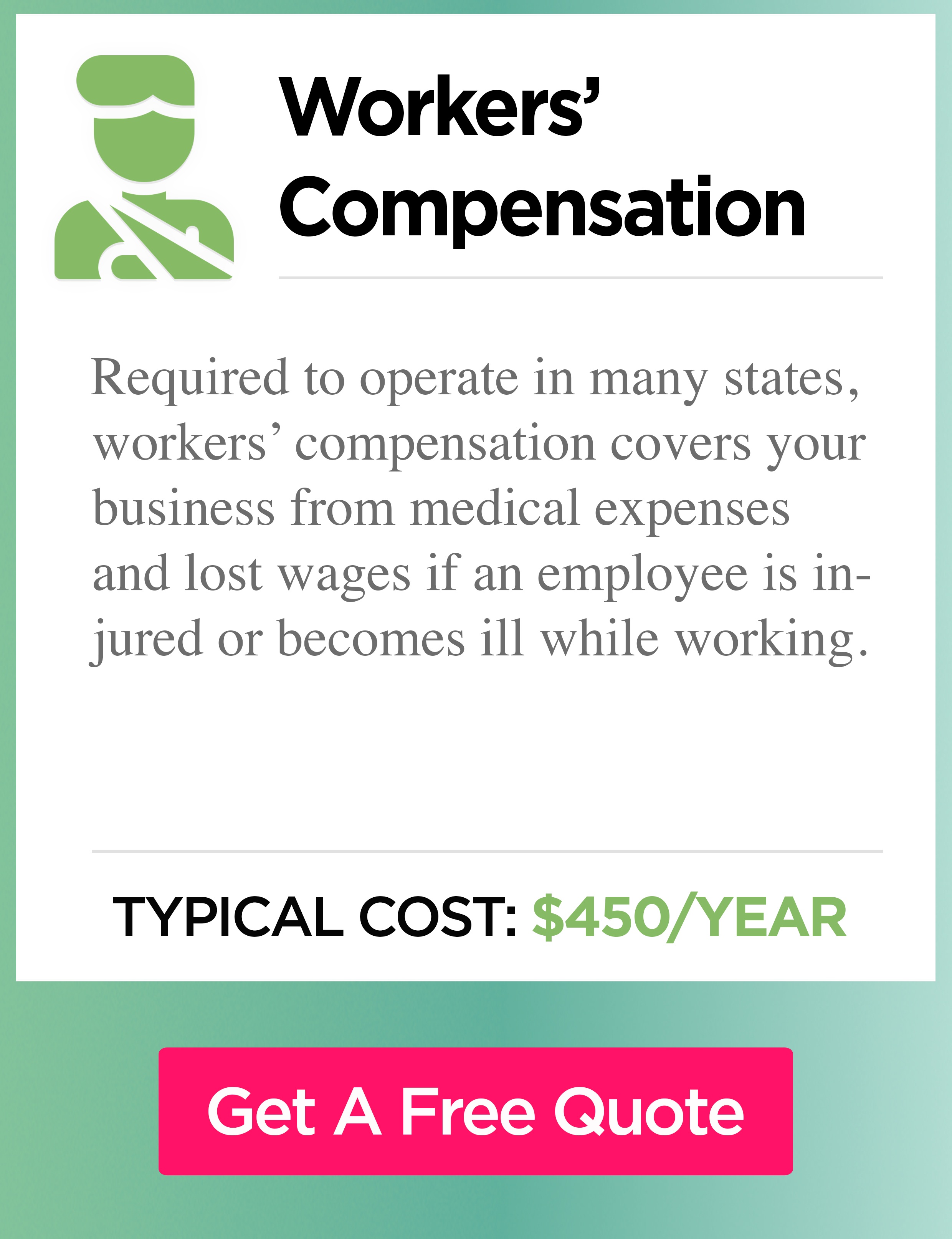Cleaning Business Insurance Cost
Professional cleaners provide a wide range of services to a variety of customers. Some make trips to homes for special occasions, while others are essential to the daily operation of a business. The one common element for every cleaning business is working in third-party property and being exposed to a number of risks. No matter your experience, care, and knowledge, accidents can occur and you might be held liable for damages. Cleaning business insurance is essential for this line of work and coverage is necessary before starting any job.
In this guide, we will provide information about cleaning business insurance costs to help you make the best decision about your own policy
We Cover in this Guide
- How much does cleaning business insurance cost?
- What is cleaning business insurance?
- Who needs cleaning business insurance?
- What does cleaning business insurance cover?
- Benefits and risks
- Tips for buying
- Types of insurance you may need
- FAQ
- Summary
How Much Does Cleaning Business Insurance Cost?
Cleaning business insurance costs range from $29 per month to $100 per month, depending on the risks of your business and your choice of limits and coverage. The premium prices for common policies start at:

What Is Cleaning Business Insurance
Cleaning business insurance represents a collection of policies that combine to cover the risks from the services you offer. In the course of cleaning, you will enter a client’s home or business and interact with their property; no matter how careful you are, something can go wrong. You might knock over an expensive art piece while dusting, or someone could injure themself while slipping on a wet floor. Cleaning business insurance will protect you from the potential legal costs and damages associated with your work.
Who Needs Cleaning Business Insurance?
A wide variety of services fall into the category of cleaning businesses, each of which will need insurance coverage. They can include:
- Home cleaner
- Commercial janitorial service
- Maid service
- Office cleaner
- Carpet cleaner
- Window washer
- Chimney sweeper
- Pool cleaner
- Laundry service and dry cleaner
- Power washer
What Does Cleaning Business Insurance Cover?
Standard cleaning business insurance policies typically cover legal costs and damages from claims including:
- Bodily injury. Example: Someone at an office trips over the vacuum cord.
- Property damage. Example: While cleaning a desk, you knock over your cleaning bottle, damaging an expensive piece of equipment.
- Personal and advertising injury. Example: A commercial for your business says something defamatory about a competing company.
While standard policies cover many scenarios, there are a number of common risks that are included and require specialized insurance. Some examples are:
- Loss or damage to your own property
- Employee medical costs and lost wages
- Mistakes by independent contractors
- Automobile accidents in personal or business vehicles
Your coverage will depend on the package you choose. Review your policy with your agent to understand your protection and add policies to fill in any gaps.
Benefits and Risks
Cleaning business insurance offers various benefits to cover risks, including:
- Peace of mind: Knowing that your business is covered in case something happens outside of your control gives peace of mind to you and your customers. Additionally, clients are more likely to hire cleaners who are adequately insured.
- Protect your assets: Since many people providing cleaning services are sole proprietors, their personal assets are tied to the business and can be used to cover liabilities. This makes insurance especially important because a lawsuit can not only shut down a business, it can destroy your own finances.
- Cover legal expenses: If a client, employee, or third party files a lawsuit against you, cleaning business insurance will cover the expenses, including attorneys fees and damages.
Tips for Buying
When considering cleaning business insurance cost, keep the following in mind before making your decision:
- Work with an independent agent: An independent insurance agent will help direct you toward providers with the best rates and the most experience covering cleaning businesses.
- Identify your risks: Be sure to thoroughly analyze your services and identify potential risks. For example, the way you pay your employees and the types of clients you serve will impact your coverage needs and limits.
- Compare quotes: Policy costs vary between insurers. Consider several quotes to find the best rates and coverage.
FAQ
Does cleaning business insurance cover independent contractors?
Certain types of insurance, like general liability, do not cover the actions of employees paid with a 1099. That means that if such an employee causes damage, your policy may not cover the costs.
What does it mean to be “bonded and insured”?
This term indicates that a business has taken necessary measures to protect itself and its clients by obtaining a surety bond and minimum insurance coverage.
Is cleaning insurance legally mandated?
Certain states and cities require insurance to operate. Be sure to check with local authorities before starting your business.
Summary
Cleaning business insurance protects against potential financial ruin from lawsuits relating to your services. By understanding cleaning business insurance costs and determining your needs, you can know that your policy covers potential risks and feel secure knowing that your business is protected.
Types of Insurance You May Need
Cleaning business insurance offers coverage for the services you provide and your individual needs. The following are some examples that may apply to you.
 |
 |
 |
 |
 |
 |
$39/Month
General Liability & Property Coverage

